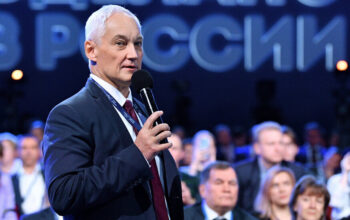
Much of the government’s handling of the question of what to do about Mr. Putin seems to be entangled in internal factional politics, said Leaza Jernberg, an international relations analyst in Johannesburg. The African National Congress, the governing party since the end of apartheid, is deeply divided, and some in the party and in the government remain staunchly loyal to Russia, she said.
The country’s main opposition party, the Democratic Alliance, has said that South African officials should withdraw Mr. Putin’s invitation if they would be unwilling to arrest him. Allowing him into South Africa without arrest could tarnish the country’s reputation and lead to economic repercussions from allies, like sanctions, said Darren Bergman, a member of Parliament with the Democratic Alliance who works on international relations.
South Africa is no stranger to this dilemma.
It was at the center of a media circus in 2015 when Omar Hassan al-Bashir, then the Sudanese president, attended an African Union meeting in Johannesburg while he was under an I.C.C. warrant for war crimes, genocide and other charges linked to the conflict in Sudan’s Darfur region, where nearly 300,000 people were killed.
At the convention center, Mr. Bashir sat in open sessions, staring stoically as photographers crowded around him. He also posed for a group photograph with the other leaders, who would not be drawn into questions about the warrant.
At a court hearing seeking to compel South Africa to arrest Mr. Bashir, lawyers for the government argued that the Sudanese leader had diplomatic immunity and attended the meeting as a guest of the African Union. The court eventually ruled that South African officials were obliged to execute the arrest — but Mr. Bashir had already left the country on his presidential jet from a military base.
That Mr. Bashir, who was ousted from power after a popular uprising in 2019, remains at large is a prominent example of the I.C.C.’s limitations. But at the time, Ms. Jernberg said, South Africa had the cover of arguing that it was standing in solidarity with other African nations, who felt that their leaders were often unfairly targeted.



